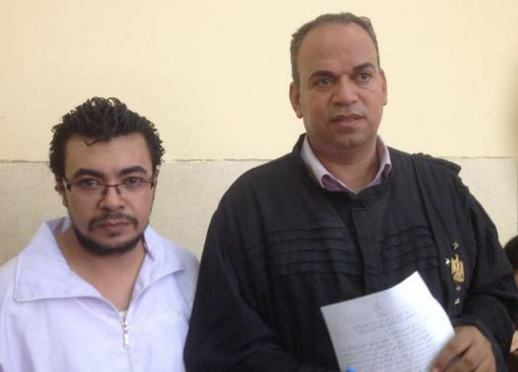
Having spent most of his adult life either harassed, in hiding, or in jail, former Muslim now Christian Mohamed Hegazy can expect more of the same.
Hegazy, who has been in prison since December 2, 2013, is known to be the first Egyptian to openly seek a change from Muslim to Christian on his ID card. The reason, he said, was to save his soon-to-be-born child from the persecution that he has had to endure.
The convert is now in jail for either a sentence that concluded six months ago, or on a 2009 charge of “contempt” of Islam whose statute of limitation has likewise expired, his lawyer, Karam Ghobrial, says.
Having already been cleared of two of three charges relating to several ‘crimes’, one thing is evidently clear: the National Security (the new name for the long-feared State Security Investigations Services, the SSI) is intent on not letting him go.
In August 2007, Hegazy, known by his Christian name Boulous, or Paul, petitioned the government to change his religious affiliation from Muslim to Christian. Stating a religion is a mandatory requirement on every Egyptian’s government-issued ID card and, as such, a pathway to one’s own civil existence in the country.
Tortured
A follower of Christ by choice since he was 16, Hegazy was briefly jailed and tortured in 2002 by the SSI; after that experience he – later with his family – lived mainly in hiding.
Arrested again in December 2013 while filming a protest in Minya, he was eventually sentenced to five years in prison on charges including spreading false information to “cause harm or damage to public interest.”
What was originally a five-year sentence was finally reduced to one year in prison (which by that time he had already served), yet he has not been allowed to walk free due to state security insisting on keeping him in jail.
Several human rights groups, including US-based Coptic Solidarity, have complained about Hegazy’s prolonged legal conundrum.
While in jail, he has not been allowed to receive Holy Communion or a Bible, and only his lawyer is irregularly allowed to see him, Ghobriel said.
Ghobriel has often tried to press legal channels to release his client, including complaining to the Prosecutor General, but to no avail.
Prosecution failed to provide evidence
Ghobriel maintains that the prosecution failed to provide evidence to back up its charges. He says Hegazy is being denied release and is deliberately subjected to abuse for no reason other than his adamant disavowal of Islam.
While in jail, Hegazy has been beaten several times a week, as well as placed in an execution room. Reportedly, he has been dragged across rough floors and had his head shaven, a treatment often reserved for sexual offenders or as a way to break one’s morale.
Egypt asserts – both in its own new constitution, which was approved in January 2014, and by virtue of its international legal obligations – respect for freedom of belief, and human dignity.
Due to long-standing prohibitions against apostasy, a Muslim who abandons Islam is considered to have committed an offence worthy of death. According to a 2013 Pew Research poll, 88 per cent of Egyptian Muslims favour the death penalty for anyone leaving Islam.
